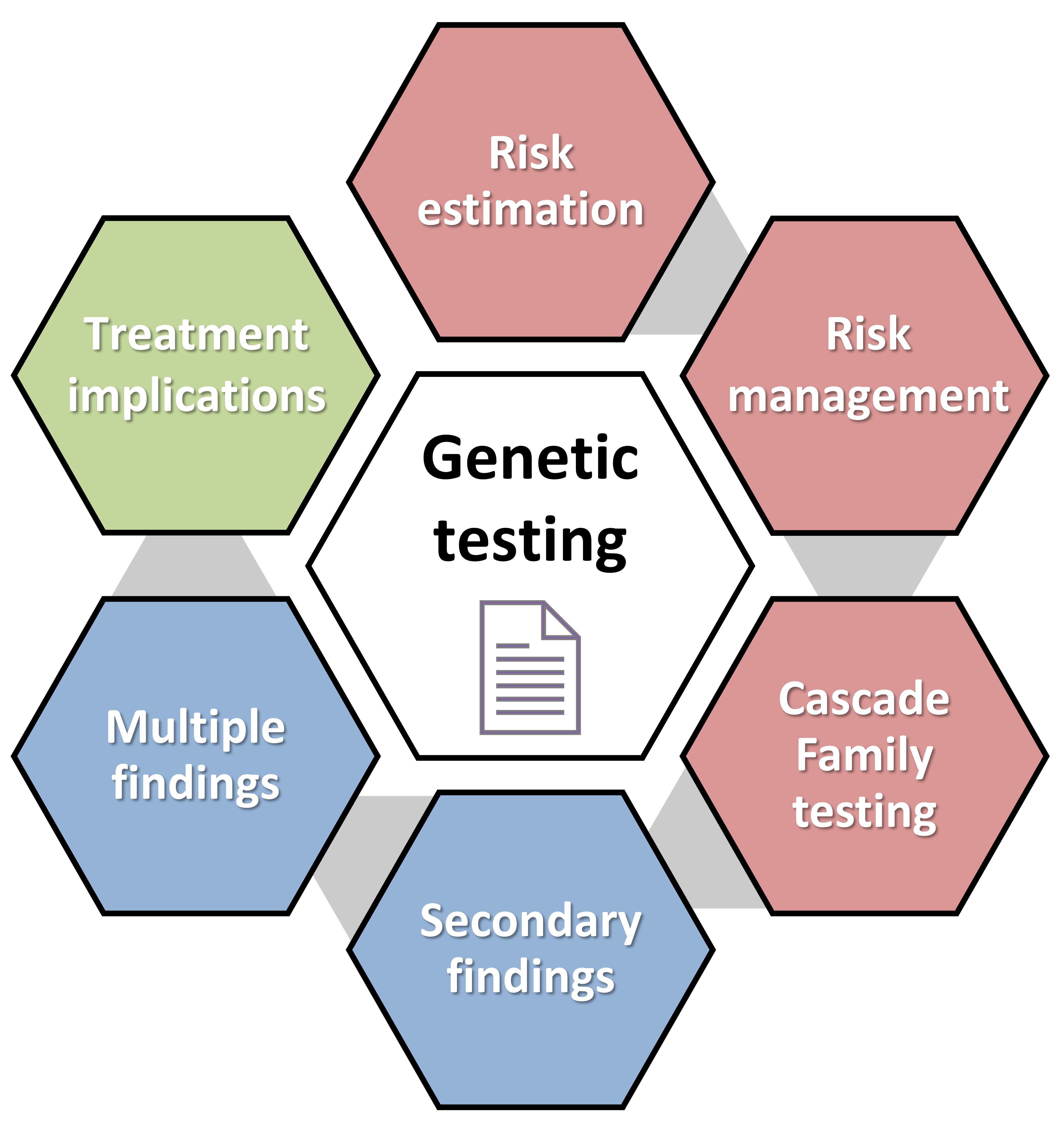The use of multi-gene panels for germline testing in breast cancer enables the estimation of cancer risk and guides risk-reducing management options for tested individuals and their family members. We performed an analysis in our clinical database to identify breast cancer patients undergoing genetic testing with positive reports. We reviewed positive results with respect to the different levels of information provided in the reports; risk estimation and management, cascade family testing, information from secondary findings and actionable information for treatment decision-making. A total of 415 positive test reports were identified with 57.1%, 18.1%, 10.8% and 13.5% of individuals having pathogenic/likely pathogenic variants in high (BRCA1, BRCA2, PALB2, PTEN, TP53), moderate (ATM, CHEK2, NBN), low (BARD1, BRIP1, CHEK2, MLH1, MSH2, MSH6, NF1, RAD51C) and with insufficient evidence for breast cancer risk genes (FANCA, FANCM, NBN, MRE11, PMS2, RAD50, RAD51B, XRCC2, MUTYH), respectively. 6.7% of individuals were double heterozygotes with two pathogenic variants. Germline findings in 92% of individuals are linked to evidence-based treatment information and receive risk estimates for predisposition to breast and/or other cancer types. The use of germline findings for treatment decision making expands the indication of genetic testing to include individuals that could benefit from targeted treatments.

